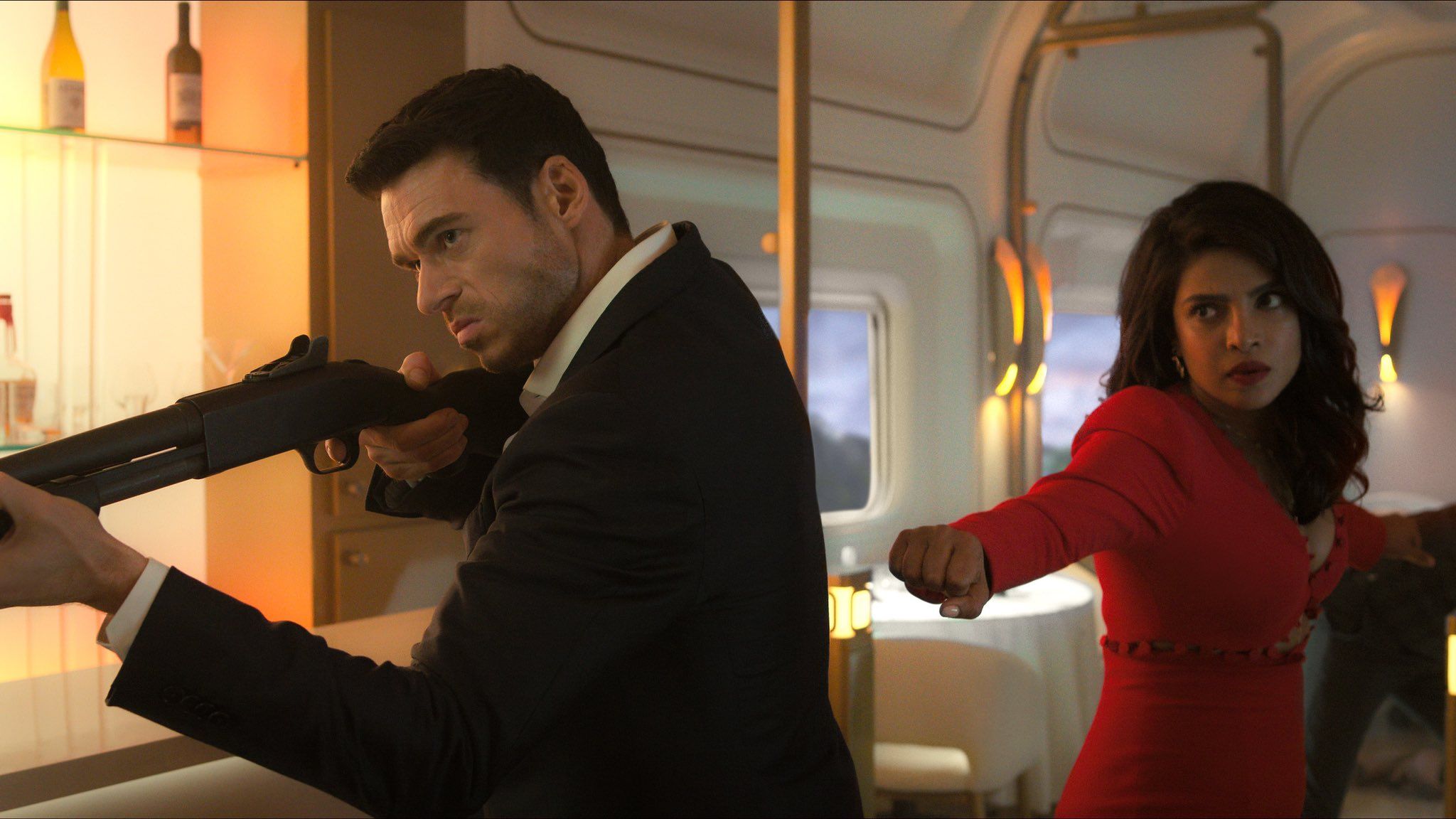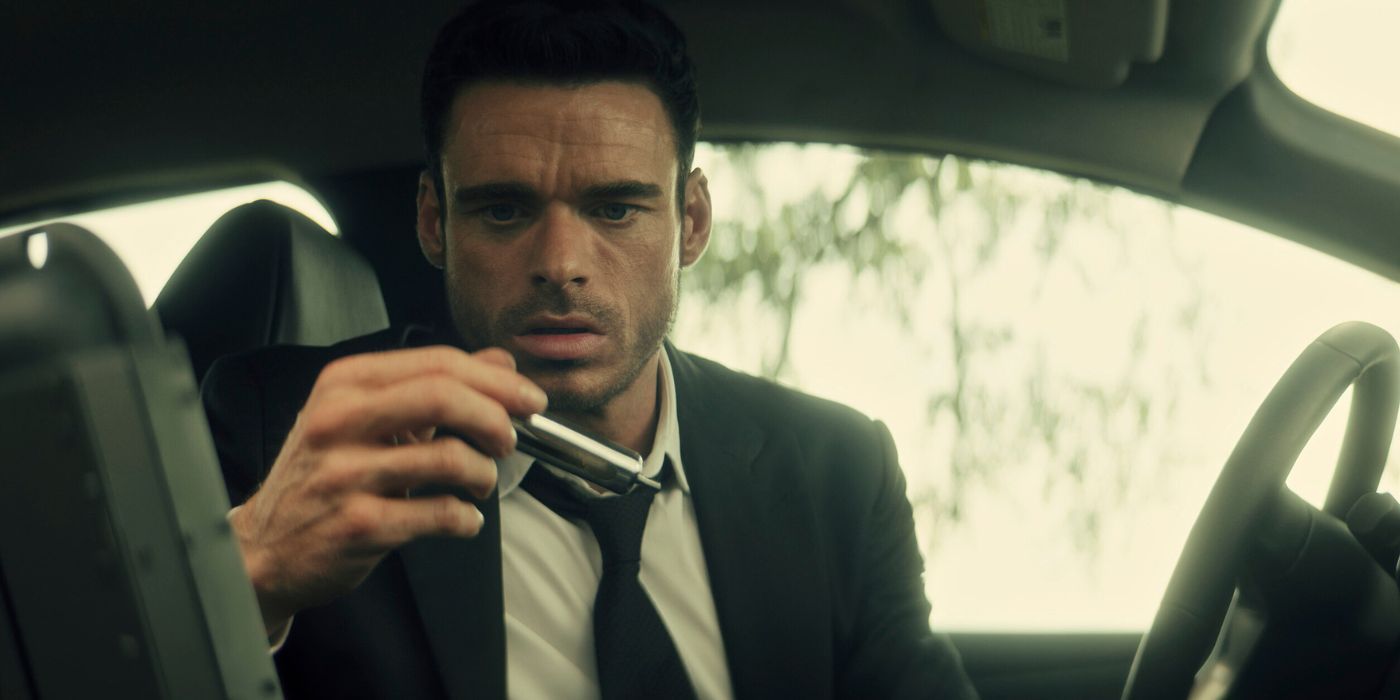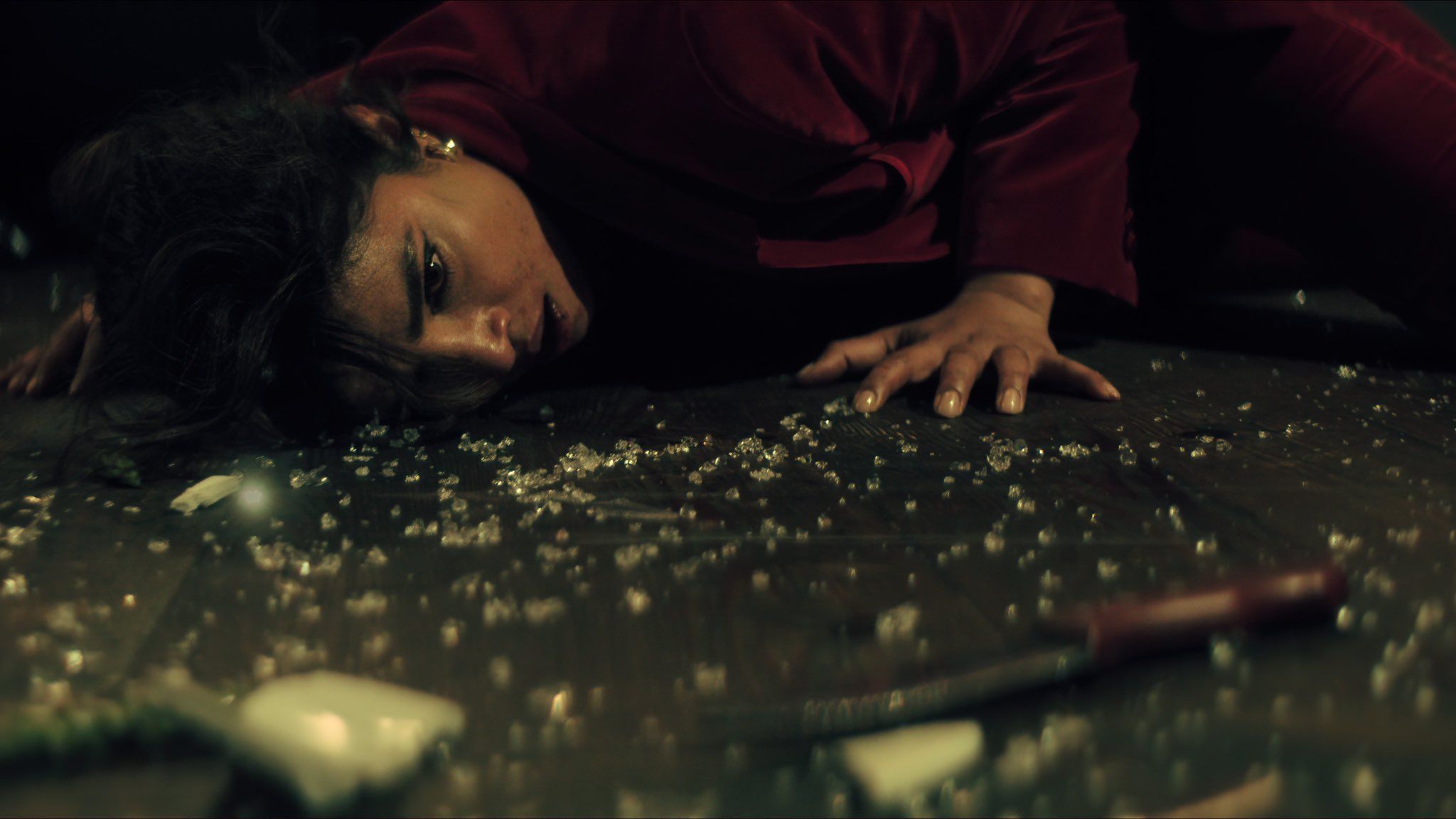If there were a direct correlation between price tags and quality, Amazon would be the greatest film and TV company in the world. First came the record-shattering deal for the rights to the Rings of Power series, to the tune of $250 million. Then came the bill for the first season of that series, which ballooned to $465 million. Now Amazon, in addition to creating the most expensive TV series ever made, is reportedly following that up by taking over the #2 spot as well. The next mega-budget series from the streamer is set to be Citadel, a high-octane sci-fi spy thriller starring Richard Madden and Priyanka Chopra Jonas. If the high-speed action of the trailer is to be any judge, it is likely to be an entertaining and crowd-pleasing experience, but such entertainment has come at a pretty price for Amazon Studios. Per the Hollywood Reporter, Citadel as it stands is set to cost Amazon a hefty $300 million for the 6-episode first season alone.
Why Did 'Citadel' Cost So Much?
As it turns out, a number of complicating factors went into that gargantuan final number. The first of these, though, is something that was expected from the beginning. Just as with The Rings of Power, the reason for the hefty up-front cost is simply that it is a calculated bet on a long-term investment. Rings of Power was a property from a well-established franchise with a built-in audience, and subsequent seasons would not cost as much after the framework had been set for the first series. The up-front cost will eventually pay off in the end if things go as planned.
So too with Citadel. One of the reasons for the cost is due to the fact that this is not by any means a one-off series, but rather a bet in favor of future returns. Rings of Power was renewed for a second season even before it premiered, and so too with Citadel. The reason for the investment, and the confidence in its success, is based upon its broad appeal. Spy movies and series have always had a strong appeal. The James Bond franchise, after all, is 60 years old and merrily in the midst of a search for the next leading man that the series will inevitably turn into a superstar. But Citadel is also an international globetrot of a series that plays into the variety of locales available to it all across the world, which ought to be more appealing to an international audience.
Even more importantly, though, there are already plans for the series to branch off into spinoffs if the original show is successful enough. The principle of the series in the first place is that the Citadel organization is an international spy syndicate with allegiances to no single nation; as such, with branches all over the world, there is ample room for growth within the Citadel universe and further series that would explore the goings-on of local chapters of the Citadel all over the world.
The Creative Team Was Expensive (and Complicated)
Another factor that drove up the costs had to do with the producers and creative minds behind the production in the first place. For one thing, the show landed Joe and Anthony Russo as executive producers at just about the pinnacle of their popularity, soon after Avengers: Endgame was released. Josh Appelbaum and Andre Nemec were also signed on to write the script for the show, having already written the script for the greatest film in another spy franchise: Mission: Impossible - Ghost Protocol. But then came trouble in paradise.
The Russos were initially less involved in the production due to their ongoing work making The Gray Man, but when their focus shifted back to Citadel, the situation got a lot more dicey. Early cuts of the episodes were not well-received by Amazon, and as the Russos got more involved later in the production, factions began to form among the group of creatives, ultimately leading to two different cuts of the season and a judgment call made by executives at Amazon. After all the dust settled, Nemec and Appelbaum left the project and took a hefty portion of followers along with them as the Russos took more direct control.
With writers and showrunners leaving the project, Citadel needed to rework a great deal of what had already been done, so a new writer (David Weil) was hired to take over the script while the rest of the production began an extensive overhaul.
The Shoot Was Extremely Complicated
In addition to the behind-the-scenes drama, there were more than enough complications going on in front of the screen as well. The appeal of an international TV series is alluring on paper, but shooting the show meant running three simultaneous units shooting in various international locations, and juggling the three sets was both problematic and expensive to coordinate.
Another complicating factor during the shoot came from a more unexpected source of expenses. The uncertainty around film and TV productions in recent years, along with the expenses involved in taking extra safety precautions on set, also made the production run over its initial expected budget.
On top of everything else, the competing visions of the project and the dueling cuts of the series meant extra production costs to produce each separate cut, one of which would inevitably never see the light of day. But even after the decision was made, showrunners and writers left, and a new crew came in, the complications of creative control meant that the show had to go through a series of extensive (and expensive) reshoots, bringing back lead actors and crew for another session that ended up adding $65 million to an already bloated budget.
Ultimately, there are countless complicating factors that are involved in bringing any movie or TV series to the screen. While Citadel has seen more than its fair share of drama in the course of its production, subsequent seasons promise to have a smoother ride on both sides of the camera. Audiences will have ample opportunity to judge for themselves if the hefty budget was worth it, but the price tag alone is a testament to just how much time and effort went into bringing the show to the small screen in the first place. Whether or not the plot will prove compelling remains to be seen, but the story of the production, at least, was certainly a compelling drama.




